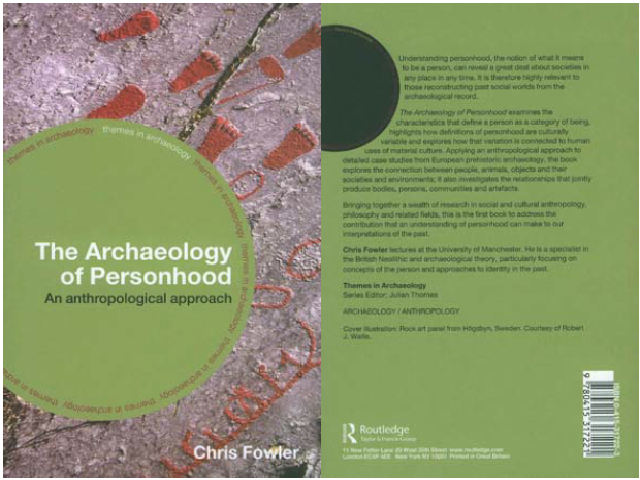Fowler, C. 2004. The archaeology of personhood. An anthropological approach. – London/New York, Routledge
Abstract
In this book Chris Fowler sets out to determine what a 'person' is and how we should understand 'personhood' archaeologically. Perhaps the most important aspect of personhood is that it does not necessarily refer to a human being. In a separate section of key definitions (p. 7) Fowler writes: “Person is used to refer to any entity, human or otherwise, which may be conceptualized and treated as a person.” This tautological definition is then followed by the statement that “a person is frequently composed through the temporary association of different aspects”. Mind, spirit, soul and physical body are considered features of these unnamed aspects. In order not to over-simplify, Fowler tries to incorporate all forms and expressions of personhood as might conceivably have existed in past societies. He specifically draws upon present day ethnographic examples from Melanesia and India. Anthropological research enables a refined understanding of such intangible concepts as ‘person’ and ‘personhood’. Fowler outlines the range of meanings of these concepts by referring to three key features of contemporary modes of personhood (p. 8-9). Read more...
Downloads




